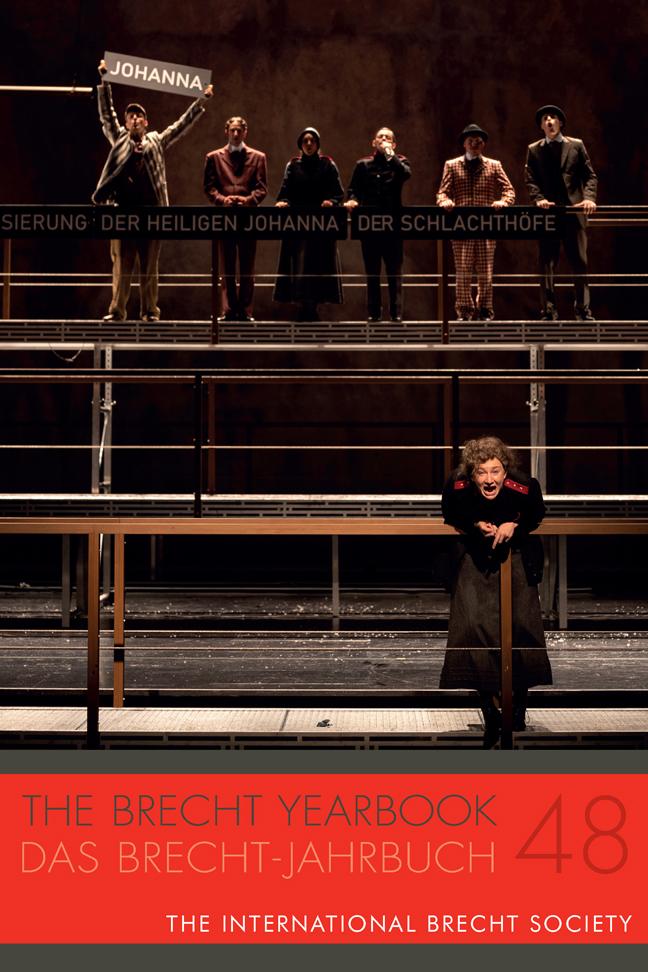Brechtian Future(s): Life of Galileo as a Pandemic Lehrstück
Published online by Cambridge University Press: 22 February 2024
Summary
Introduction: Brecht as Future
In 2013, during the Relations Festival at the Münchner Kammerspiele, I was asked along with some of my international young peers (directors, actors, dramaturgs) from the Netherlands, Japan, and England to prepare a performance lecture on the future of Europe. Back then the epicenters of public discourse were the Great Recession of 2007–2009 and the immigrant crisis that would reach an apex in 2015, and Greece was in the very eye of the storm. In our first meeting one name came to my mind, and one name only: Bertolt Brecht. To engage with the future demanded—as far as I was concerned—an emotional distancing from the present, at least in performative terms. The recent coronavirus epidemic has produced a social space of intense “crisis-scapes,” and the Verfremdungseffekt of Brecht seems more relevant now when social-distancing (not aesthetic estrangement) has become a daily coda. We experience an acclimatization to the negative forces of social progress that Brecht famously addressed in his groundbreaking Lehrstücke, which featured loss—however cruel—as an inevitable part of life. It is undeniable that his dramaturgy and notion of Gestus can help us reframe our social existence. Leben des Galilei (Life of Galileo) appears to be a parable from the past made for (our) future. In this article, I will showcase, step by step, the formation of a proposed production of the play that displays the radical intersections with the recent pandemic as well as the not always so simple (but always illuminating in their prevailing contradictions) “lessons” to be learned from the play. In this context, my article presents Leben des Galilei as a performative paradigm of social self-awareness. The answer for communal progress may be articulated through Brecht, using a lens decisively directed to the future—much like his ambiguous figure, Galileo, who starred through the telescope. In this article I incorporate aspects of Brecht's theory and reference examples from the proposed production.
Change, Contradiction, Empathy
Let me start with an initial look at the “Brechtian Stage” and its implementation in a proposed production on the pandemic using Leben des Galilei as a model.
- Type
- Chapter
- Information
- The Brecht Yearbook / Das Brecht-Jahrbuch 48 , pp. 181 - 196Publisher: Boydell & BrewerPrint publication year: 2023



